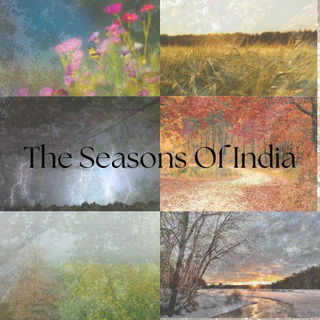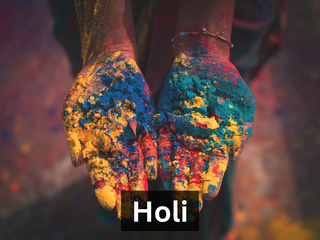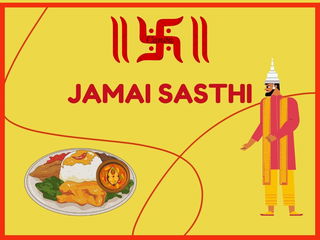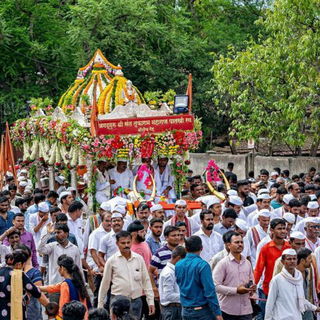- Calendar
- Calendar 2026
- July
- Devshayani Ekadashi
Devshayani Ekadashi
Devshayani Ekadashi, also known as Shayani Ekadashi,is a religious day of the Hindus that falls on the 11th day or ekadashi of the waxing moon in the month of Ashadha.
According to the Gregorian calendar, it falls in the month of June or July . Also known as Maha Ekadashi, it is considered sacred by Vaishnavas, as it marks the beginning of Lord Vishnu’s cosmic sleep.
Devshayani Ekadashi Date And Timings 2025
In 2025, Devshayani Ekadashi will be observed on Sunday, 6 July.
The Ekadashi tithi begins at 6:58 PM on 5 July and ends at 9:14 PM on 6 July.
Parana (the breaking of the fast) is scheduled for 7 July between 5:29 AM and 8:16 AM, with Dwadashi ending at 11:10 PM that day.
What is Devshayani Ekadashi
Devshayani Ekadashi is derived from two Sanskrit words: “Deva,” meaning “God”, referring to Lord Vishnu in this context, and “Shayani,” which means “sleep.”
So, Devshayani Ekadashi refers to the eleventh day when Lord Vishnu enters Yoga Nidra according to Hindu scriptures.
He sleeps on the serpent Adishesha in the cosmic ocean of milk and this sleep continues for four months.
The sleep concludes on Prabodhini Ekadashi in the month of Kartika which according to the Gregorian calendar falls on October–November, when Vishnu awakens.
This four-month phase is called Chaturmasya, during which various religious observances, fasts, and lifestyle modifications are undertaken by devotees.
It begins with Devshayani Ekadashi and ends with Prabodhini Ekadashi. These months coincide with the Indian monsoon season and are seen as a time for spiritual reflection and internal purification.
During Chaturmasya, devotees undertake various vows such as:
- Fasting on every Ekadashi
- Avoiding certain food items like garlic, onions, grains, and pulses
- Abstaining from non-vegetarian food and intoxicants
- Refraining from conducting weddings and other auspicious ceremonies
The Folklore of Devshayani Ekadashi
In the Bhavishyottara Purana, Lord Krishna shares the sacred significance of Devshayani Ekadashi with Yudhishthira, echoing an ancient narration once given by Lord Brahma to his son Narada.
This revered day, also called Shayani Ekadashi, is deeply rooted in devotion and spiritual merit, and is closely tied to the story of the virtuous King Mandata.
King Mandata was known for his just rule and unwavering dharma. His kingdom flourished under his care, until misfortune struck in the form of a relentless drought.
For three consecutive years, the heavens withheld their rains. The fields lay cracked and barren, and the people grew weary from hunger and despair. No ritual, prayer, or offering could bring relief.
Determined to find a solution, the king approached the wise sage Angiras, seeking spiritual guidance.
The sage counseled him to observe Devshayani Ekadashi with sincere devotion, explaining that this sacred fast had the power to please Lord Vishnu himself.
Taking the sage’s advice to heart, King Mandata observed the fast with complete faith and a heart full of devotion.
He spent the day worshipping Lord Vishnu, focused solely on the divine with no distractions.
Pleased by the king’s unshakable faith and devotion, Lord Vishnu showered his grace upon the land.
Soon after, clouds gathered, rain fell once more, and life returned to the once parched kingdom.
The drought ended, and abundance followed, all through the blessings of Devshayani Ekadashi.
Pandharpur Ashadi Ekadasi Waari Yatra
Ashadi Ekadashi is marked by the conclusion of the famous Pandharpur Waari Yatra.
This massive pilgrimage ends at Pandharpur, a sacred town by the Chandrabhaga River, where Lord Vitthala, a beloved form of Lord Vishnu, is worshipped.
Thousands of pilgrims, known as Warkaris, travel on foot from different parts of the state.
Along the way, they carry decorated palanquins (Palkhis) holding idols or symbols of saints such as Sant Tukaram, Sant Dnyaneshwar, Sant Namdev, and others from their hometowns.
During the journey, the Warkaris sing devotional songs known as Abhangas, which express their love and surrender to Lord Vitthala.
These spiritual hymns, passed down through generations, fill the air with energy and emotion.
The entire event reflects the power of faith, bringing together people from all backgrounds in a shared expression of devotion.
Observing Devshayani Ekadashi
Fasting on this day is believed to usher in peace, prosperity, and spiritual liberation.
Devotees often observe a full-day fast, and some take on the more demanding nirjala vrat, refraining from both food and water.
Devshayani Ekadashi starts before sunrise with a ritual bath, ideally in a holy river. Devotees set up a clean altar, decorating Lord Vishnu's image with tulsi, sandalwood, and flowers.
Lamps and incense create a peaceful vibe. Prayers, bhajans, and chanting of texts like Vishnu Sahasranama follow.
Most avoid grains, eating only fruits, milk, and water, unless doing a complete fast.
As night falls, many remain awake for jagran, singing hymns, engaging in discussions about dharma, and performing spiritual songs and dances.
Offering food and essentials to those in need is considered especially auspicious, with acts of kindness believed to enhance the vrat's blessings.
The fast is broken the next morning during the Parana muhurta, a specific and spiritually significant time.
Devshayani Ekadashi is most famously celebrated in Pandharpur, Maharashtra, as Ashadhi Ekadashi.
The highlight is the Pandharpur Wari, a massive foot pilgrimage where millions of Warkaris walk with palkhis (palanquins) carrying the padukas of saints like Dnyaneshwar, Tukaram, Namdev, and Eknath.
Along the way, they sing abhangs, devotional songs from the Bhakti movement, creating a soulful, community-driven celebration.
Spiritually, the day marks Lord Vishnu’s symbolic rest, encouraging reflection, simplicity, and righteous living.
It aligns with India’s monsoon season, promoting light diets, reduced travel, and mindful living, echoing ancient wisdom in tune with nature.
Devshayani Ekadashi is more than a religious fast, it's a day of spiritual renewal, compassion, and devotion.
Whether observed at home or through pilgrimage, it helps devotees move closer to moksha, freedom from the cycle of rebirth.
Recommended Articles

Other Celebrations
-
May 27 Wed
-
Jun 11 Thu
-
Nov 10 Tue
-
Nov 19 Thu
-
Nov 24 Tue
-
Nov 24 Tue

Devshayani Ekadashi - Next years
Tuesday, 13 July 2027
Monday, 03 July 2028
Sunday, 22 July 2029











